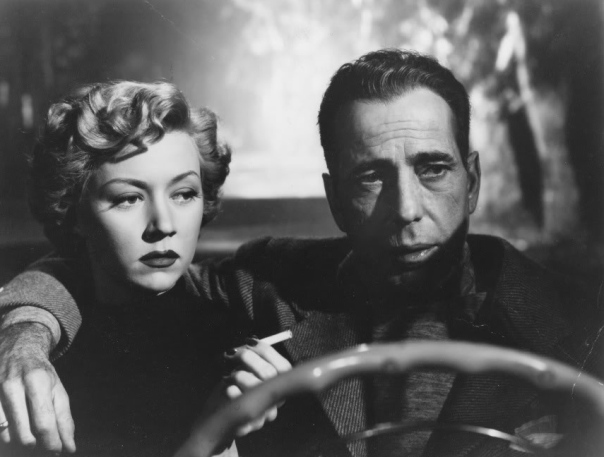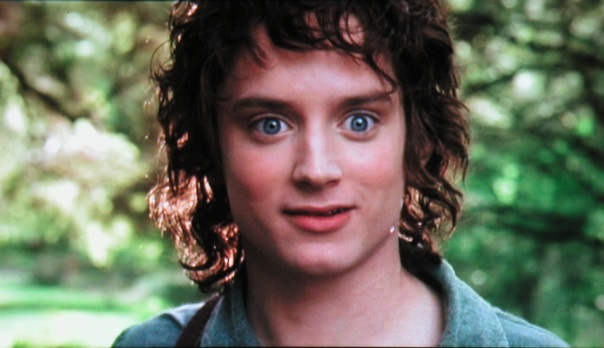Ever seen a film and fallen volently in love with it, only to fall violently out of love next time you see it, or even before you see it again, to the extent that the mere mention of its name makes you seethe? Ever shrugged the first time, only to find a film won’t let you go. MostlyFilm certainly has, and some of our finest minds, after the jump, will tell their stories of the times THEY WERE WRONG.
The Lord of the Rings: The Fellowship of the Ring – Mr Moth
In retrospect, I was never going to like it. I always sort of hated the book – it was one people thought I should read, but I could never get past the fucking hobbit party at the start – and it was only the amazing trailer that persuaded me to go. I was ready, honestly, to give it a chance. After sitting through three, maybe seven, hours of people looking into the distance and saying bits from the book I didn’t like, I remember stepping out and saying “Well… that was poo.” My exact words. Poo. I couldn’t even summon up a proper insult.
It lost me friends, and respect. I was denounced as a troll for saying that I didn’t like it. That it felt like an audiobook, not a movie. That the only good bit was Orlando Bloom. That Elijah Wood’s massive neck was all I could see of him. It became my thing, for a while, online. I didn’t like The Fellowship of the Ring.
God knows, then, why I watched The Two Towers, but I did. And do you know when my epiphany came? When Elrond was talking, uninterrupted, about just… stuff. It went on for ages, but it was a story and I thought, “I could listen to this for hours” (which, in fairness, I was). It flipped something in my head. I finally read the book, all the way through in one exultant burst. I went back to Fellowship and saw it with fresh eyes – it is a staggering achievement. Although The Two Towers was my turning point, Fellowship is now my favourite adaptation. The world-building is unmatched; solid and beautiful, before self-indulgence and goofiness clouded peter Jackson’s vision. When it is at its best it shimmers, as it should, with magic and mysticism.
Heathers – Niall Anderson
The things you like say nothing about you. Communists can like DW Griffiths. Republicans can like Bruce Springsteen. Anarchists can like Coldplay. Hell, women can like Woody Allen. The link between what you like and what you’re like is always tenuous.
However, if you tell me you like Michael Lehman’s 1989 high-school schlockfest Heathers, I’m willing to hazard a few guesses. You’re aged between 35 and 42. You first saw it on TV. You went through a big Douglas Coupland phase a few years later. You thought Winona Ryder was perfection (you maybe still do). Most importantly, you’d never seen a John Waters film. All you knew was that this snide day-glo nightmare of teenage life felt a bit beyond what you’d seen before. Not more adult – thank heavens – just a bit more exclusive.
If you’re under 35, though, I doubt you’ve even heard of it. And with good reason: Heathers is terrible. The sprightly black comedy of teenage peer-bonding and murder that Gen Xers remember is not the film you’ll see if you watch it today. Instead you’ll see a cheaply assembled, badly acted farce that never quite knows where it’s heading. And yeah, that goes for a lot of John Waters films too, but borrowed bad taste is surely the very definition of worthlessness.
Anyway. Westerberg High, Ohio, is ruled by a clique of supper-club brats, all called Heather. Padded of shoulder and crimped of hair, they rule the school by being slightly mean to a fat kid. The Heathers would like to include Veronica Sawyer (Ryder) in their clique, but Veronica doesn’t seem that fussed about being mean to the fat kid, and besides she’s a bit obsessed with sardonic newcomer J.D. (Christian Slater). J.D. rides a chopper and has the best hair and teeth in the film. When Veronica writes in her diary that the Heathers deserve to die, J.D. takes her literally and tries his best to make Veronica his accomplice. This is all fine.
What’s not fine is the delivery. If you were being kind to Ryder’s performance, you’d say it was nice that somebody was keeping their cool amid all the shouting and mugging. If you were being kind to Slater’s, you’d say that he probably felt he had to shout louder than everyone else to get noticed. Between them, however, they contrive to produce a kind of annihilating anti-chemistry. They’re just not that into each other. Alas, the script demands that they should be.
The script itself fairly quickly runs out of steam. There is a pretty magnificent joke about mineral water halfway through, at which point Veronica decides that J.D. is a total nutball. As unexciting as J.D. and Veronica’s relationship is before that point, they’re even less exciting as enemies. Slater takes the opportunity to push his Baby Nicholson performance into full-on Shining levels of hamminess. Any minor claim the film had to social satire ends at that point. And there’s still a good forty minutes to go.
It gives me no pleasure to say any of this. I am precisely the 35-42 year-old described above, and I loved Heathers immoderately growing up. But satire works best if every card is equally wild, and therefore equally plausible. Slater’s J.D. is pushed beyond plausibility in order to give the film an ending. More troubling is the idea that J.D.’s psychopathy is explicitly founded on his parents being divorced. This is an idea that John Waters would reject with a snort. You should, too. Stick with the Master.
In a Lonely Place – Paul Duane

I don’t know what it’s like now, but in the ’80s, if you studied film at all, pretty much the first thing you discovered that was ‘cool’ was film noir.
The lights, the dames, the hats, the suits, the expressionism, the violence, the music – it was all cool. Everybody went around experimenting with venetian blinds to make noir lighting. If you were super-cool, like me, you started wearing a hat. And if you read the right books, you discovered noir’s roots in Germany, Caligari, the lighting of John Alton and Gregg Toland, and you got to start arguments by casually stating things like “Oh, Citizen Kane is noir, of course.”
Then you thought you knew all about noir, and you hear about In A Lonely Place, and it’s supposedly a classic noir. But there’s no slanting shadows, no dingy bars, no (or hardly any) violence. So, you write it off as boring. A misfire, not really noir at all.
I re-watched In A Lonely Place a few years back. What a shock I got. Because this film is the most mercilessly brutal account of middle age and the drift into mediocrity imaginable. A real noir of the soul. Dixon Steele (what a noir name!) is a writer, an alcoholic, living a marginal life in Hollywood – not Bukowski down-and-out, not a success either. A miracle happens, as he meets Gloria Grahame, and with her, the chance of a new life. But his own nature intervenes. Happiness slips away. He doesn’t get dragged to the death chamber, he just walks away to face the rest of his life, which – the viewer is able to conjecture – will merely be a living death, a limbo of solipsistic self-pity. That’s real noir.
Magnolia – MarvMarsh
The first time I saw Magnolia was in a cinema in Reading in 1999 and I emerged afterwards so full of righteous fury that I knew what it felt like to want to write a letter to someone in purple ink, and it had nothing to do with the Rod Stewart impersonator in the bar next door. Magnolia stunk. But worse was its particular stinky fragrance. It was pretentious, flash, hollow, stupid, self-important and anyone who liked it was a sucker. I wouldn’t even have dismissed the suggestion that the director had done it on purpose: had made a film designed to make fools say they liked it. Why he would do that I don’t know but when you’re feeling purple inky anything seems possible.
What of course made it worse was that people did like it; loads of people, including some who you might otherwise think of as normal human beings. For years I stood firm against them and their love for a pompous film full of empty gestures and overblown tricksy nonsense. And then I saw There Will Be Blood.
I emerged from the cinema after seeing that, this time in Brixton in 2007 (no Rod Stewart impersonator in hearing distance), full of excited confusion. What I had just seen was clearly absolutely fantastic but quite what it was I didn’t know. It took me a while to let it settle that There Will Be Blood is the work of someone truly exceptional. Sadly for me, that someone had also made Magnolia. If There Will Be Blood was so good, could I be wrong about Magnolia? It felt like I had to find out, but Magnolia was so bad that it seemed an act of self-abuse (and not the good kind) to make myself watch it again. It nagged at me for long enough though that in the end I did.
On second viewing Magnolia was transformed for me into something bold, stylish and filled with real feeling, the thing I had been so sure it absolutely lacked. It also features the best performance Tom Cruise has ever given and a final moment that might be the best ending to a film I’ve ever seen. It is as bold and wild as There Will Be Blood but very different. It is as bold and wild as Paul Thomas Anderson’s other two excellent films, Boogie Nights and The Master, but again very different. It turns out that he is a bit of a genius and I cannot wait to see his adaptation of Inherent Vice later this year.
It has worried me that perhaps in changing my mind so violently on Magnolia I am like someone who looks at a painting of a wonky-faced person and hates it until they’re told it’s by Picasso but I don’t think so. More likely, my original criticisms show up a boring, knee-jerk cynicism (calling something pretentious is always a warning sign of that) that I hope I’m less likely to feel now. Also, I still hate Punch-Drunk Love. Maybe Inherent Vice will be so good it will make me try that one again, but I doubt it.
Sunset Boulevard – Blake Backlash
I should have watched Norma Desmond more closely. About an hour into Sunset Boulevard she does her Charlie Chaplin impersonation for Joe Gillis. Joe does not appreciate it – but it’s perfect. When she’s Chaplin, Norma is witty, self-aware and in love with life and the movies. She doesn’t get to be any of those for the rest of the film – but for a brief moment she is all of them. And she does it all without saying a word.
Words and images keep struggling to get free from one another in Sunset Boulevard. Just before Norma does her Chaplin, Joe is remembering the young writer from the reader’s department he has fallen for. We’re stuck with him for a narrator, so we hear his voice on the soundtrack. A smile plays around his lips, and I guess it’s because he likes the girl. But he likes his words too: he has his eyes closed, all the better to be alone in the dark with them.
There’s something obsessive and excessive about Gillis’s narration. Even the three bullets that Norma puts in him can’t shut it up. It keeps intruding where it isn’t needed. There’s a beautiful shot of Joe arriving at Norma’s house. The image alone is articulate and Franz Waxman makes it eloquent. But we aren’t spared Gillis’s hacky take on the set-up: ‘It was like that old woman in Great Expectations, that Miss Havisham… taking it out on the world because she’d been given the go-by’.
I hate that line – the overcooked literary reference, rendered into regular-Joe Americanese. I used to blame Billy Wilder and IAL Diamond for lines like that. I thought this was too much of a writers’ film. But I should have noticed that most of the lines like that come from Gillis, who is a writer. And I should have noticed Norma ferociously rebuking Gillis: ‘You’re writing words, words, more words. Well you’ve made a rope of words to strangle this business! But there’s a microphone right there to catch the last gurgle!’
I think it was that ferocity that really scared me when I first saw the film. The way Gloria Swanson plays Norma was too intense for me. She holds her hands out in front of her like she wants to rip a hole in the screen. Her eyes stare like she’s trying to make every member of the audience ashamed to be looking at her. Her voice soars and dives, like she’s taking revenge on her dialogue, on behalf of all those silent movie actors who couldn’t make the transition to talkies. I don’t know if Norma Desmond is the hero of Sunset Boulevard but Gloria Swanson is. And it was realising that that made me love the film.
In the end, neither words or pictures can hold her. In the final shot she walks towards the camera and, gradually, the shot goes out of focus, turning Norma into a grey blur. She is too big for small pictures – but the pictures can’t kill her. So they turn her into fog, make her evaporate.
Gravity – Laura Morgan
I only had myself to blame. I went into Gravity with, quite literally, sky-high expectations. Part of the problem was that I had no real idea what it was about – had I realised that the film I was about to see was the same one whose trailer had underwhelmed me some weeks earlier to the extent that I hadn’t even remembered its name, I might have been better prepared for disappointment. As it was, I’d enthusiastically hoovered up recommendations and exclamations of delight from filmgoers much more knowledgable than me, and was ready to have my mind blown.
Well, the opening scene was stunning and I upped my speed of popcorn consumption accordingly. And then…nothing much seemed to happen. At the time, on this blog’s sister talkboard, I said this:
I thought it looked sensationally good, but nothing else about it did a great deal for me. I didn’t feel tense or excited, I didn’t believe in the characters or the situation, and I’m afraid I did find the [SPOILER REDACTED] kind of mawkish…I mean, it was fine, it was obviously good, but I didn’t love it, and I was expecting to love it.
What’s interesting about that, if you read it closely, is that it’s not about the movie at all: it’s about me. I was expecting X, I got Y. Well, fine: you’re allowed your own reaction to a movie. But a few days later, because I am always weeks behind with it, I listened to the BBC’s Wittertainment podcast interview with the director, Alfonso Cuarón, and I realised that the film he set out to make was precisely the film he did make – a sparse, linear, 90-minute, elegantly choreographed exhibition dance, pared back to its bones, letting his simple story and, especially, his breathtaking visual and sound effects, shine.
He cited Spielberg’s Duel as one of his inspirations and suddenly I got it: this is a film whose complexity isn’t about narrative or character, and it was never meant to be. Essentially, one thing happens (twice), but it happens within the context of an adventurous experiment with the nuts and bolts of film-making, and if I didn’t care about Sandra Bullock’s [REDACTED], or thought we could have managed with fewer shots of her in her underwear, or found George Clooney’s character irritatingly non-credible, well, that wasn’t really the point.
I still don’t love Gravity, but I do now understand what it was for, and I applaud Cuarón for having a vision and realising it beautifully.



I still unashamedly love Heathers and Slaters baby Nicholson. And I continue to passionately loathe TWBB and adore Punch Drunk Love. I couldn’t comment on Magnolia. Just the thought of Cruise in this turns me into a purple ink hulk looking for something to smash.
Wonderfully put above one and all.
Oh, I should just add – fuck the Hobbit films, man.